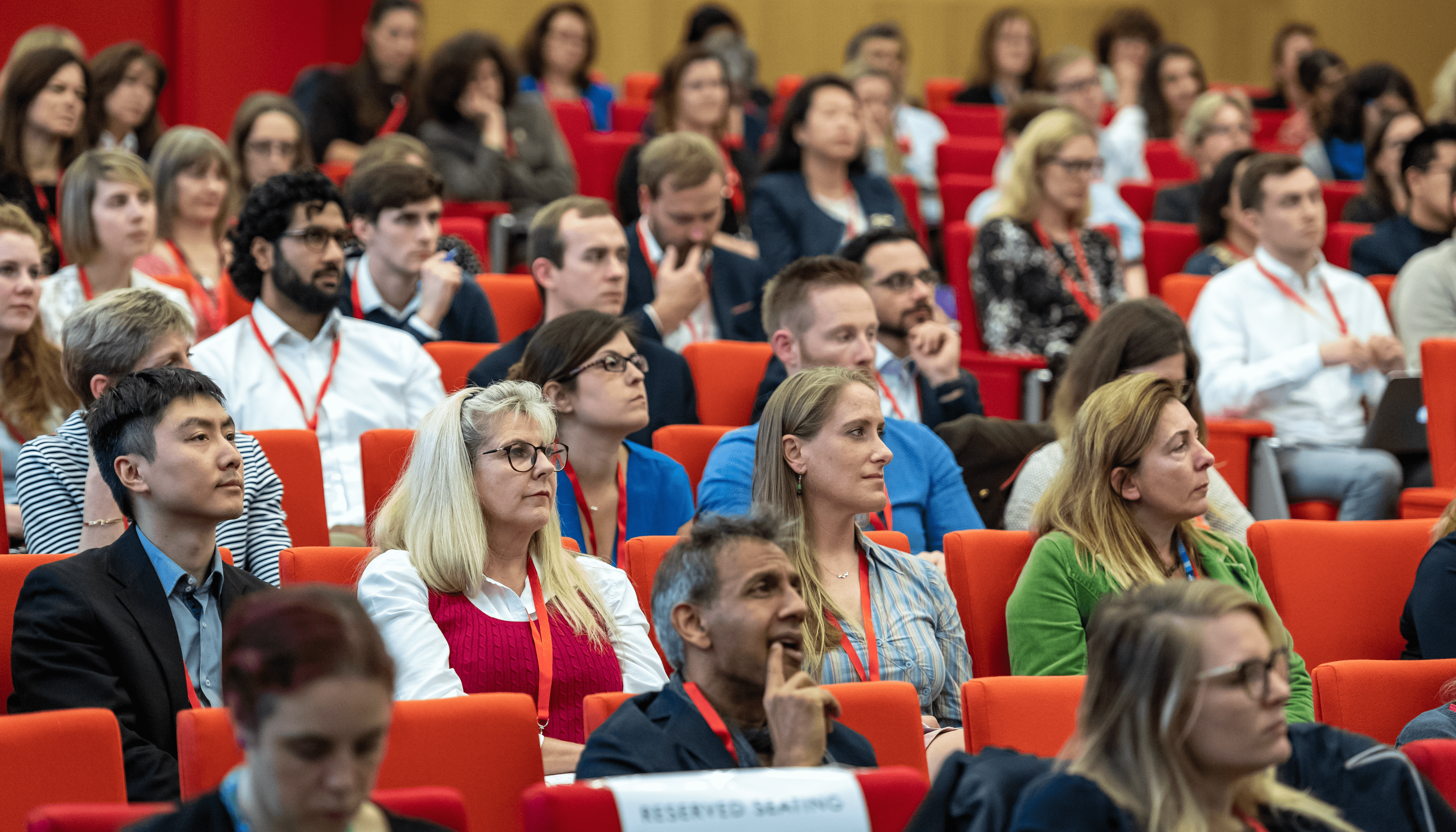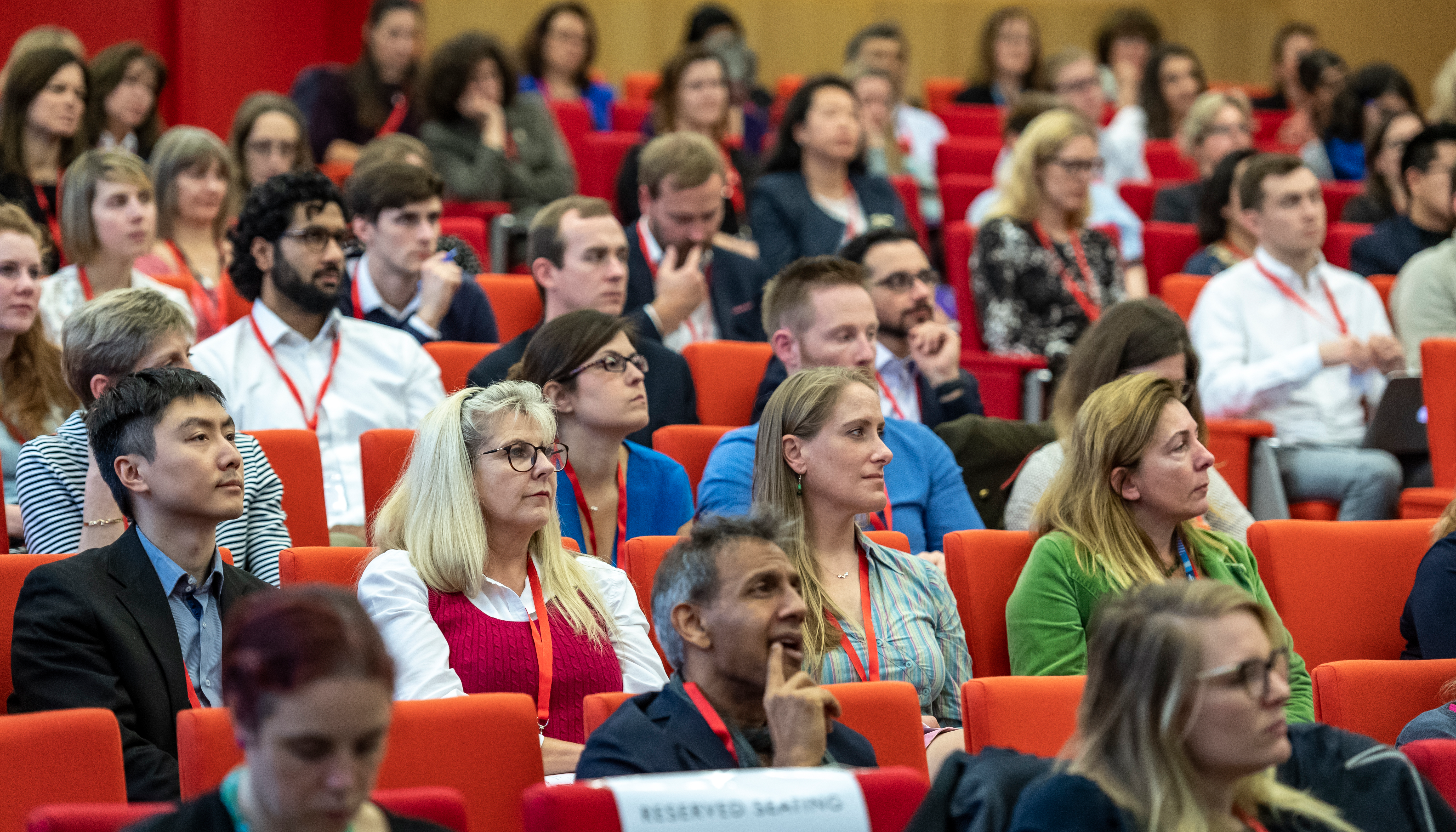
BioBeat is a collaborative innovation platform fostering partnerships between scientists, entrepreneurs and investors. On 15 November we attended BioBeat’s annual summit in the inspiring surroundings of the Wellcome Genome Campus (WGC). Exploring the theme of ‘disrupting biodata healthcare’, the summit brought together thought leaders from across the life science industry to discuss how the convergence of data and biology generates new business opportunities in the life science and healthcare industries. The summit proved to be a popular and successful event—so we’ve put together our highlights for you to enjoy.
Introducing BioBeat18: Collaboration is the key
The summit opened with a few words from Miranda Weston-Smith, BioBeat’s founder. She
explained that biodata raises huge business opportunities and could help us improve the world’s
health—but in order to achieve this, experts need to work together. In this spirit of partnership,
Miranda acknowledged the valuable support of the event’s venue and introduced Dr Julia Wilson,
Associate Director of the Wellcome Sanger Institute.
Julia outlined the vision of the WGC to connect science, enterprise and innovation. Also
emphasising the importance of partnerships, she cited examples of the WGC’s ambitious global projects that could never have been achieved in isolation. “They all require open data and
collaboration and inclusion, and these are the core values that will extend with us as this campus
expands”.
How biodata collaborations could transform drug discovery
The first session began with a fascinating talk by Dr Maya Ghoussaini from Open Targets at the Wellcome Sanger Institute. Speaking about her team’s collaborative work, she outlined how biodata could transform drug discovery.
Maya presented the challenge: drug discovery is hugely expensive and time-consuming, with 85%
of drug candidates failing at clinical trials. To improve efficiency, pharmaceutical companies are now
turning to genetics and genomics data to guide their selection of candidate drugs.
Genetic variants occur everywhere in the genome—sometimes in coding regions, where they can
cause rare Mendelian disease such as cystic fibrosis, but more commonly in the non-coding regions
between genes, where they have subtle effects on gene expression that affect the likelihood of the
onset of complex diseases such as cardiovascular disease and cancers. Genome-wide association
studies (GWAS) use large populations to investigate these genetic variants. This biodata is now
being utilised in drug discovery with the aim of dramatically reducing costs and time—drugs are
eight times more likely to succeed if supported by Mendelian evidence, and twice as likely to
succeed if supported by GWAS evidence.
To benefit from this biodata, we need to make this huge resource available and searchable. Open
Targets is a partnership between academia and industry, linking genetic variants with the genes
they affect, and connecting genes with known drugs to enable drug repurposing. Describing such an
ambitious project with far-reaching benefits, Maya’s talk reflected the theme of the summit and
demonstrated the value of collaboration.
The growing potential of patient-generated data
Next up was a talk by Dr Elin Haf Davies, CEO and founder of Aparito. Exploring the growing
potential of another type of biodata, she spoke about how patient-generated data could transform
our approach to clinical trials.
Elin explained that despite huge scientific advances over the last twenty years, clinical trial
methodology is much the same, and 42% of paediatric trials still produce inconclusive results. She
believes it’s time to change the way we design clinical trials, using patient-generated data and
‘digital biomarkers’.
What exactly are digital biomarkers? Put simply, they are healthcare measures generated by
patients that are collected through digital tools. So rather than relying on snapshots of data from
hospital visits, we can now use smartphone-based digital platforms such as Aparito’s to capture
huge amounts of health-relevant data in real-time, using video, photo, voice, text and data from
wearable sensors.
This ‘big data’ will advance our understanding of disease phenotypes. Elin also proposed that it
could change the drug development paradigm to a more iterative process in which we understand
differences in response between individual patients, enabling more targeted treatment. This is a
rapidly growing space in the healthcare industry, with huge potential for new and collaborative
projects to develop.
Constructing sustainable business models
After introducing these two thought-provoking examples of biodata businesses, the summit moved
on to a lively panel discussion exploring how to construct sustainable business models. The
discussion was led by five women previously identified by BioBeat as ‘movers and shakers in
biobusiness’: the panel was chaired by Jo Pisani (Consulting leader at PwC) and featured Dr
Natalie Banner (Lead for Understanding Patient Data at Wellcome), Dr Liberty Foreman (CEO of
DynamX Medical), Fiona Nielsen (CEO of Repositive) and Dr Elisa Petris (Partner at Syncona).
Fiona kicked off the discussion, highlighting the importance of adaptability in finding a company’s
niche. Speaking about the challenges of growing a business, she drew on her own experience of
founding a charity and developing it into a commercial company.
Natalie moved the debate on to the thorny issues of data protection and privacy. Emphasising the
importance of honesty and transparency, she discussed how to build trustworthiness into a
business model.
Elisa then added a financial perspective. Reflecting on her extensive experience of starting new
companies, she highlighted the importance of focusing on clinical utility and really understanding the
needs of stakeholders and the market.
Lastly, Liberty gave her take on sustainability, explaining that the key is to always think one step
ahead and remain dynamic in a changing landscape.
Featuring an interactive audience Q&A, the panel discussion really got to the heart of the big issues
involved in building new businesses in a changing healthcare landscape. The panellists used their
varied experience to discuss the challenges of finding investors, changing business models, and
hiring new talent—and finally combined their insights to identify the biggest opportunities in biodata
healthcare.
BioBeat18 was a dynamic and inspiring event, bringing together a diverse range of experts to
generate thought-provoking discussions on disrupting biodata healthcare. Throughout the summit
the key theme that emerged was the importance of partnerships, and BioBeat provided a valuable
environment for leaders from across the field to come together and share their expertise. As
Miranda said, “collaboration is a principle that sits at the heart of everything that BioBeat18 stands
for.”
To learn more about BioBeat18 and find out about next year’s plans, visit the BioBeat website.




